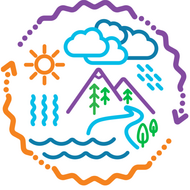NGSS in Action: Science in the Schoolyard (Workshop 1 of 4)
(View Complete Item Description)The Next Generation Science Standards (NGSS)* call for students to use the practices, concepts and content of science and engineering to understand phenomena and solve problems that are relevant to their lives. Starting from a student’s own experiences and community makes the science meaningful and increases engagement while helping students understand how global issues like climate change are present and addressable in their lives. In this series (NGSS in Action: Science and Engineering in your Schoolyard) we examine how you can use the new science standards and your community to understand and address real world environmental problems and explore together how to integrate NGSS into your district’s classroom science units.Workshop 1: Science in Action Description: "Venture outside the walls of the classroom to find local environmental phenomena that can anchor your classroom science unit. Explore with us the big picture of Next Generation Science Standards’ “three dimensional” science learning and then get hands on with the Science and Engineering Practices as you use them to build an understanding of an example phenomenon in our 'schoolyard.' You’ll leave this workshop with ideas and examples you can use in your own classroom science curriculum."
Material Type: Lesson Plan




















